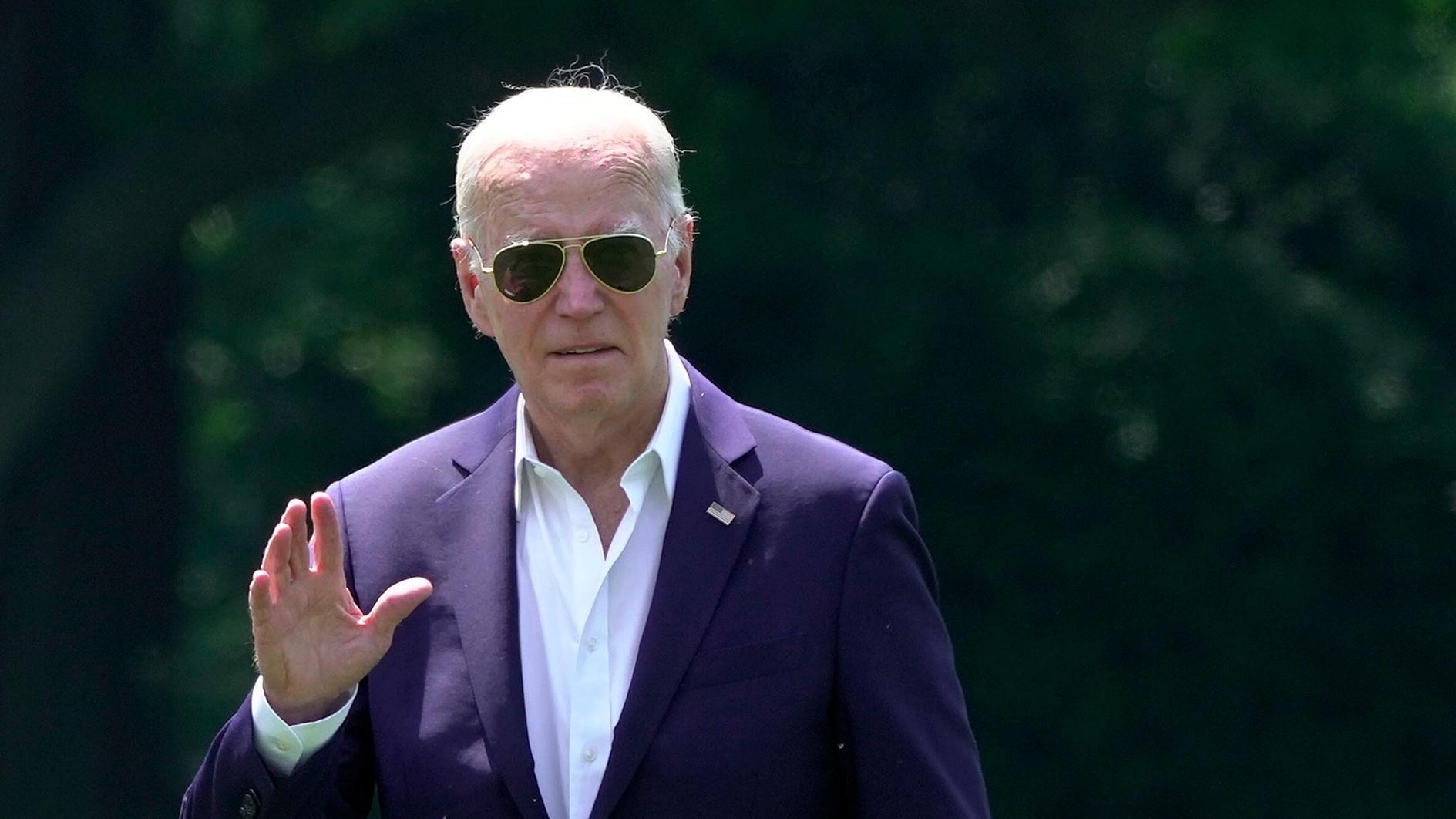Biden unveils US Supreme Court reform plans
WASHINGTON

U.S. President Joe Biden announced plans Monday for urgent reforms to the conservative-dominated Supreme Court, in a bold but long-shot move as he seeks to make a mark in his last six months in power.
The 81-year-old Democrat is calling for a constitutional amendment to reverse the Supreme Court's recent ruling backing Donald Trump's claims of presidential immunity, according to the White House.
The Democrat is also calling for term limits for Supreme Court justices, who currently serve for life, following shock rulings such as the repeal of the nationwide right to abortion.
Biden, who will further unveil the plans in a speech in Austin, Texas later Monday, will also seek an enforceable ethics code after a string of scandals.
He had confirmed he would seek the reforms during an Oval Office address last week outlining his priorities after deciding to drop out of the 2024 election, though the plans have almost no hope of getting through a deeply divided Congress.
"This nation was founded on a simple yet profound principle: No one is above the law. Not the president of the United States. Not a justice on the Supreme Court of the United States. No one," Biden said in an opinion piece published Monday.
"What is happening now is not normal, and it undermines the public's confidence in the court's decisions, including those impacting personal freedoms. We now stand in a breach."
Though their chances are slim, the proposed reforms reflect Biden's growing frustration with a court packed with Trump-appointed judges, and come as opinion polls show a growing loss of public confidence in the institution.
The White House said that both Biden and Vice President Kamala Harris, now the presumptive Democratic nominee for November's election, "look forward to working with Congress" on the plans.
Biden had previously resisted calls to overhaul or reform the court of nine lifetime-appointed justices.
But the White House said Biden would now seek 18-year term limits on Supreme Court justices, with new justices being appointed every two years.
'Close to zero'
This would "reduce the chance that any single presidency imposes undue influence for generations to come," it said in a fact sheet.
He would also seek a "binding, enforceable" ethics code similar to those that apply to federal judges.
The top court has a 6-3 conservative majority, with three judges who were appointed while Trump was president, and has dealt Biden several blows in recent years.
The court stunned the world in 2022 when it overturned the 1973 Roe v Wade ruling that had underpinned the federal right to abortion. At least 20 states have now brought in full or partial abortion bans.
This year the court significantly rolled back the power of federal agencies, while also partially ruling in early July in favor of Republican nominee Trump's immunity claims.
Trump is now using that ruling to challenge his recent criminal conviction in a porn star-hush money case as well as a series of other prosecutions.
Meanwhile the Supreme Court has been rocked by ethics scandals involving arch-conservative justices.
Justice Clarence Thomas recently admitted that two luxury vacations he took in 2019 were paid for by a billionaire Republican political donor.
Thomas, the longest-service justice on the court, has also ignored calls to recuse himself from cases related to the 2020 election, after his wife took part in the drive to keep Trump in power despite his electoral loss.
And Justice Samuel Alito has rejected calls to recuse himself from some Trump-related cases after flags linked to the former president's false election fraud claims were discovered to have been flown outside his home and vacation property.
Legal expert Steven Schwinn warned however that Biden had a "close to zero" chance of getting the plan through.
But Biden was probably trying to "raise public consciousness" and "introduce the Supreme Court as an election issue," Schwinn, a law professor at the University of Illinois Chicago, told AFP.
















